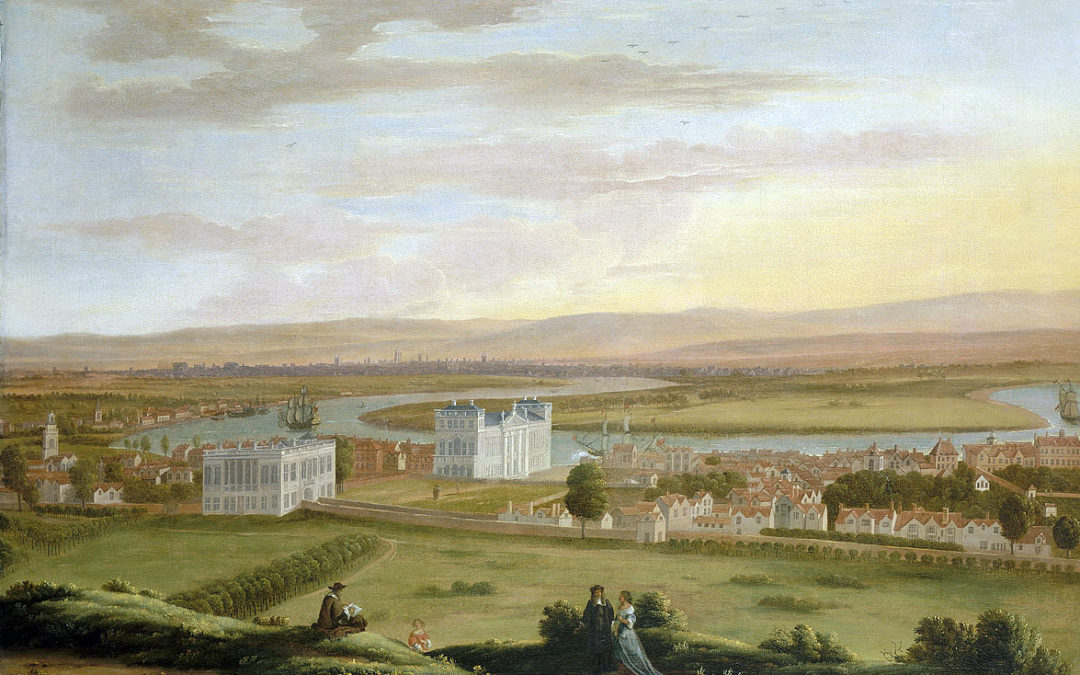 Pepys’s “frolique” is a euphemism for a picnic, which did not exist as a word in English. It was among his favorite ways to spend an afternoon with friends idling. It was a favorite way for him to spend an afternoon with friends idling. We know this...
Pepys’s “frolique” is a euphemism for a picnic, which did not exist as a word in English. It was among his favorite ways to spend an afternoon with friends idling. It was a favorite way for him to spend an afternoon with friends idling. We know this...
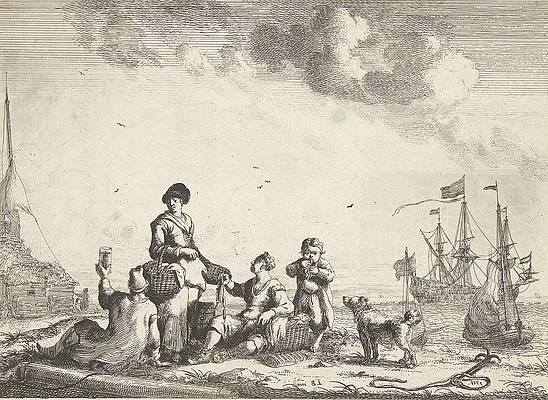 Bakhuizen embellished this seascape (his usual subject) with a group of picnickers. Picnick ann zee’s contemporary title is appropriate but inaccurate because picnic was not applied to an alfresco meal in 1701. Pique-nique had only been included in Gilles...
Bakhuizen embellished this seascape (his usual subject) with a group of picnickers. Picnick ann zee’s contemporary title is appropriate but inaccurate because picnic was not applied to an alfresco meal in 1701. Pique-nique had only been included in Gilles...
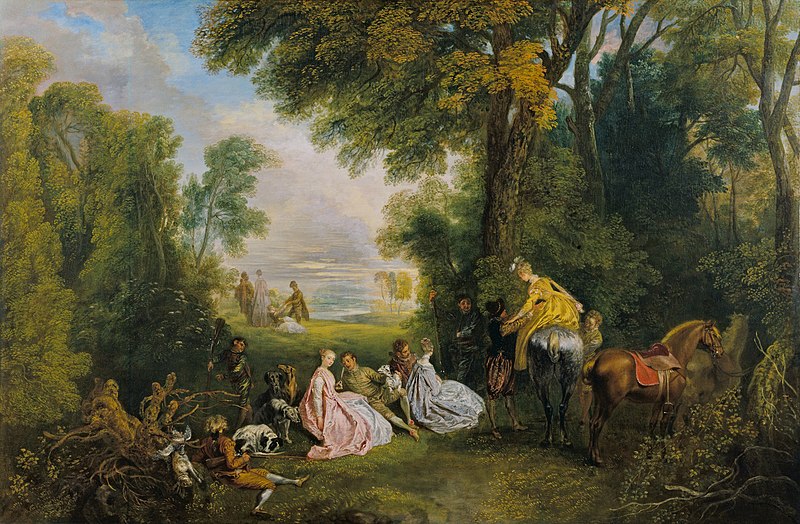 Watteau’s Rendez-vous de chasse illustrates a common activity among hunters, especially aristocrats who stopped about midday for a luncheon. The pause was called a tryst (a meeting at predetermined location), where their wives or mistresses met the hunters....
Watteau’s Rendez-vous de chasse illustrates a common activity among hunters, especially aristocrats who stopped about midday for a luncheon. The pause was called a tryst (a meeting at predetermined location), where their wives or mistresses met the hunters....
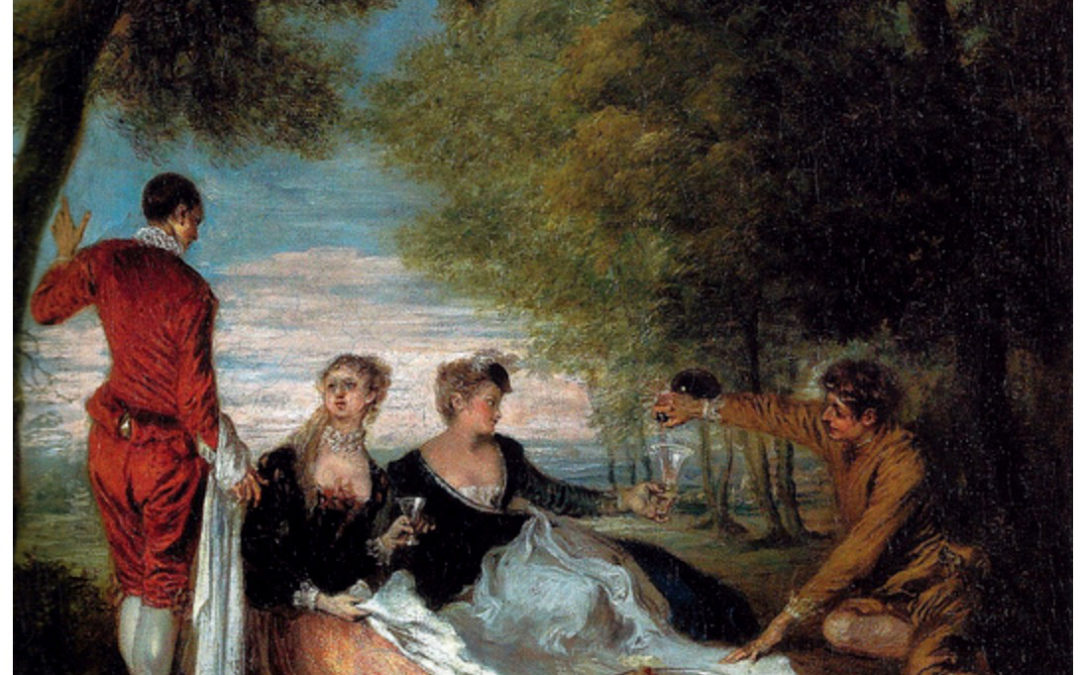 Watteau’s The Collation or Lunch in the Open (1710-1720s c.) is intimate and picnicky. Among his works, it is the most like a déjeuner sur l’herbe, except for his hunt luncheon subjects. As usual, for the French, the subject is not referred to as un...
Watteau’s The Collation or Lunch in the Open (1710-1720s c.) is intimate and picnicky. Among his works, it is the most like a déjeuner sur l’herbe, except for his hunt luncheon subjects. As usual, for the French, the subject is not referred to as un...
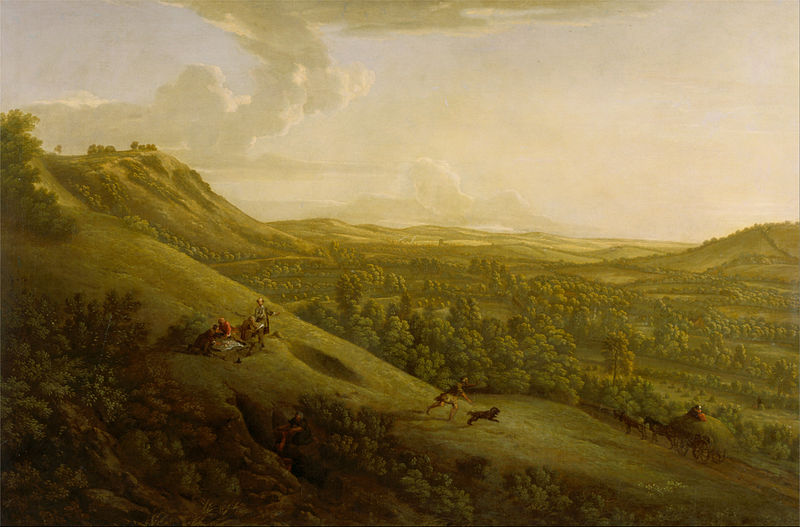 Even if George Lambert knew the French word pique-nique, he would not describe an outing on the grass because it was not used in this context. By French custom, it was an indoor meal. Moreover, there is no evidence the English used pique-nique in writing or vocabulary...
Even if George Lambert knew the French word pique-nique, he would not describe an outing on the grass because it was not used in this context. By French custom, it was an indoor meal. Moreover, there is no evidence the English used pique-nique in writing or vocabulary...
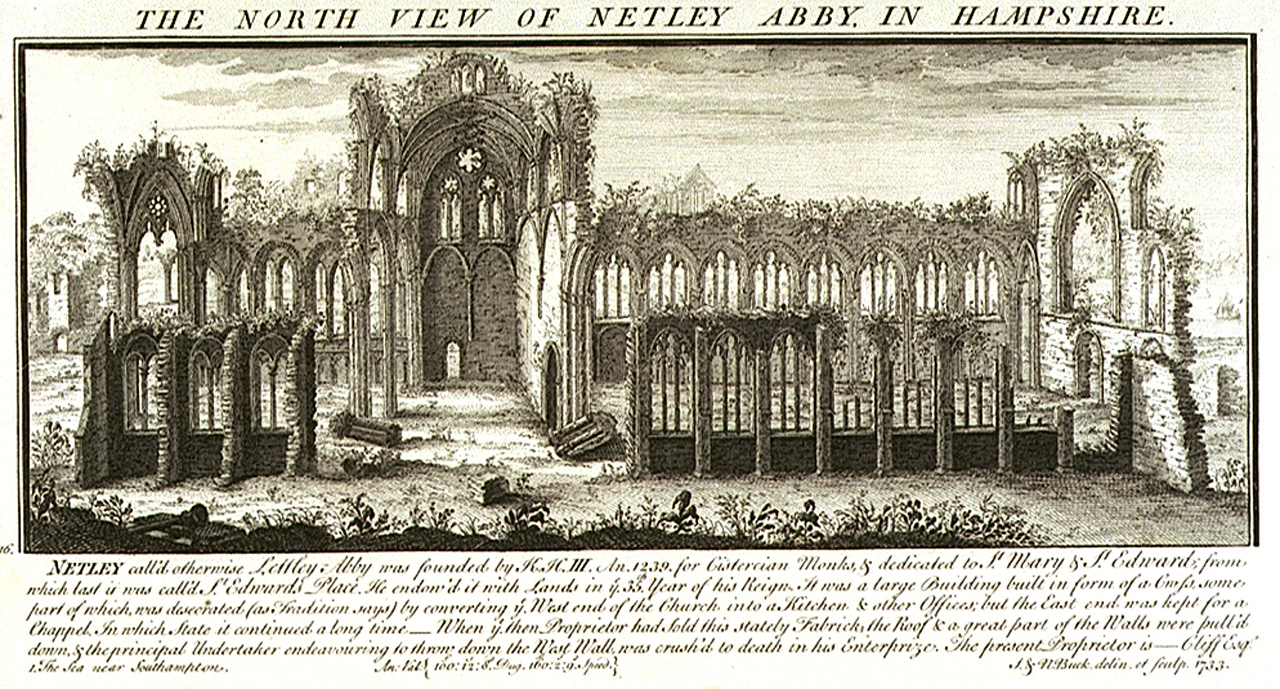 Writing to his dear friend (and probable mistress) Martha Blount, Pope related his adventure at Netley Abbey and his alfresco luncheon there. He does not call it a picnic because the word was not used in English parlance until 1806. (See Harris’s The happy...
Writing to his dear friend (and probable mistress) Martha Blount, Pope related his adventure at Netley Abbey and his alfresco luncheon there. He does not call it a picnic because the word was not used in English parlance until 1806. (See Harris’s The happy...
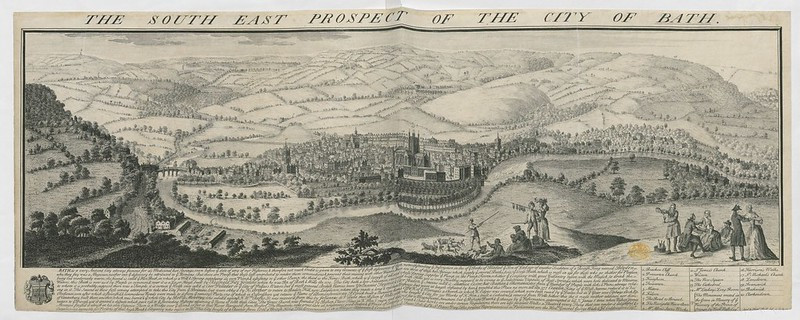 This view of Bath from the southeast by Samuel and Nathaniel Buck shows the distant city from the hills above the River Avon. Beneath the view is a brief history of the city to 1734. Though the Bucks did not have the word picnic, they embellished with shepherds and...
This view of Bath from the southeast by Samuel and Nathaniel Buck shows the distant city from the hills above the River Avon. Beneath the view is a brief history of the city to 1734. Though the Bucks did not have the word picnic, they embellished with shepherds and...
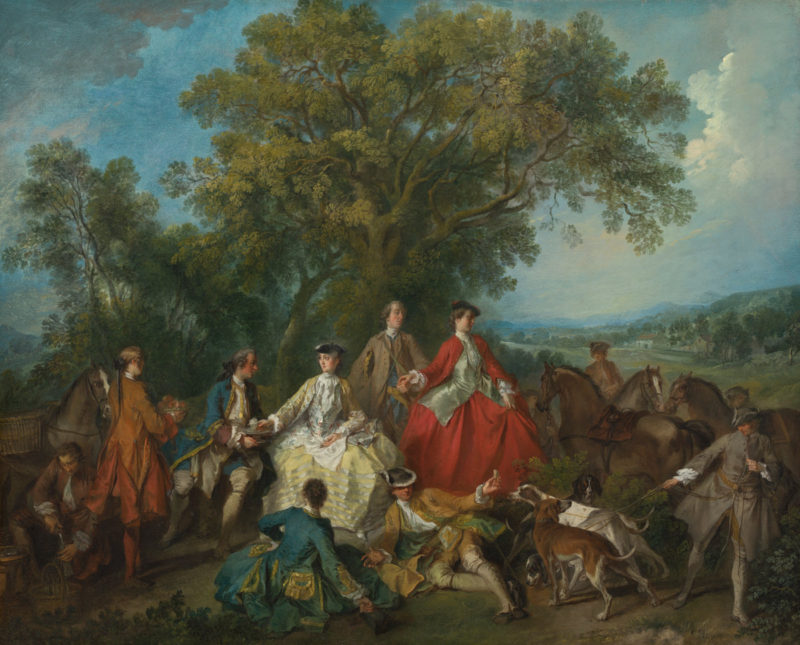 Because the scene is obviously a picnic, the National Gallery of Art’s title, The Picnic after the Hunt, is apt. But Lancret, whose language was French, would not have used pique-nique because it refers to an indoor dinner. More likely, he would have titled un repas...
Because the scene is obviously a picnic, the National Gallery of Art’s title, The Picnic after the Hunt, is apt. But Lancret, whose language was French, would not have used pique-nique because it refers to an indoor dinner. More likely, he would have titled un repas...
 De Troy’s hunt meals were designed for aristocratic patrons. Two paintings Hunt Breakfast and The Death of a Stag were commissioned as companions pieces by Louis XV and designed for his private dining room in Fontainebleau. Hunt Breakfast depicts the high spirits of...
De Troy’s hunt meals were designed for aristocratic patrons. Two paintings Hunt Breakfast and The Death of a Stag were commissioned as companions pieces by Louis XV and designed for his private dining room in Fontainebleau. Hunt Breakfast depicts the high spirits of...
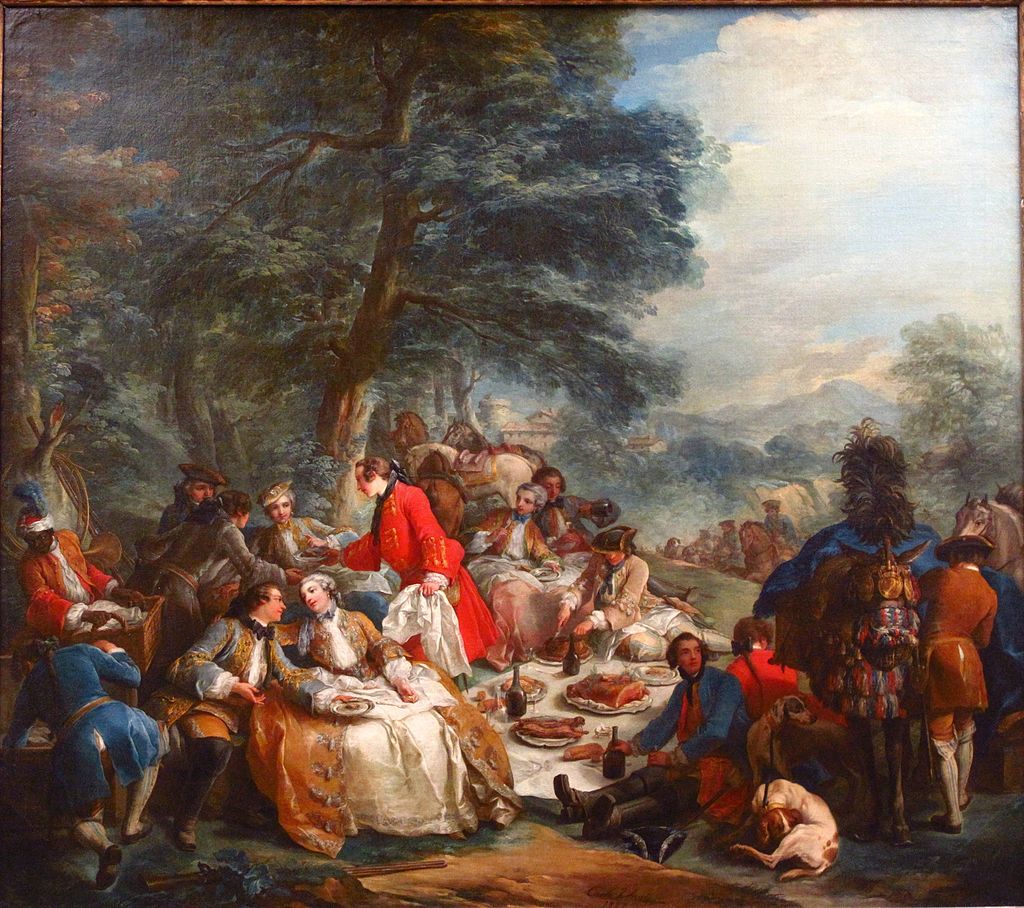 As usual among the French, a halt on the hunt is never referred to as a picnic, although that’s what it is. Van Loo’s Halte de chasse is a narrative of a stop during the hunt, at which the ladies meet the hunters at a predetermined place, called a tryst,...
As usual among the French, a halt on the hunt is never referred to as a picnic, although that’s what it is. Van Loo’s Halte de chasse is a narrative of a stop during the hunt, at which the ladies meet the hunters at a predetermined place, called a tryst,...











